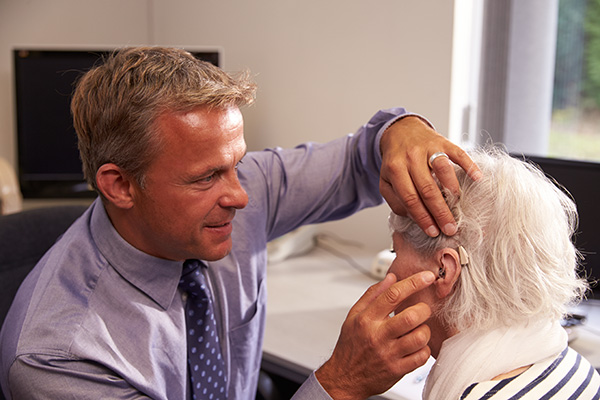
Three parts comprise the ear: the outer, middle and inner ear. All three parts play an important part in hearing. Sound waves travel through your outer ear into your middle ear. When the sound waves reach the middle ear, they cause your eardrum to vibrate. The vibrations are transmitted through tiny bones called ossicles, located in your middle ear. The vibrations travel through the ossicles into the inner ear. A snail-shaped organ, the inner ear is responsible for creating and sending the nerve impulses from the ear to the brain. Your brain recognizes these impulses as sounds. The inner ear is also responsible for controlling balance.
There are a number of conditions that could affect your hearing or balance. One of those conditions is called tinnitus. According to the U.S. National Library of Medicine, people who suffer from tinnitus often describe hearing a ringing sensation in the ears. It can also sound like a roaring, clicking, hissing or buzzing noise. The pitch can vary from low to high. People may suffer from tinnitus symptoms in one or both ears.
How many people have tinnitus?
Tinnitus is more common than most people think — 45 millions of Americans suffer from it, the Centers for Disease Control and Prevention reports. Nearly one-third of those sufferers find the constant noise so debilitating they seek medical attention for it.
What causes tinnitus?
The prolific nature of the disorder could be due to its many causes, which include: conductive (aged-related) hearing loss, exposure to loud noises, ear and sinus infections, Meniere’s disease, heart or blood vessel problems, brain tumors, thyroid problems, certain medicines or hormonal changes in women.
Unhealthy habits have also been linked to tinnitus. Researchers have correlated drinking alcohol, smoking cigarettes, eating certain high fat and high sugar foods and consuming caffeinated beverages to having tinnitus.
How is tinnitus treated?
As there are many causes to tinnitus, there are also many treatments. Treatment options may include hearing aids, sound-masking devices, medicines and coping mechanisms for dealing with the noise. Individuals who suffer from tinnitus have often turned to meditation for coming to terms and peace with their disorder.
If you are suffering from a symptom of tinnitus — ringing, buzzing, whizzing or hissing — in one or both ears, contact a hearing healthcare professional for an appointment.
